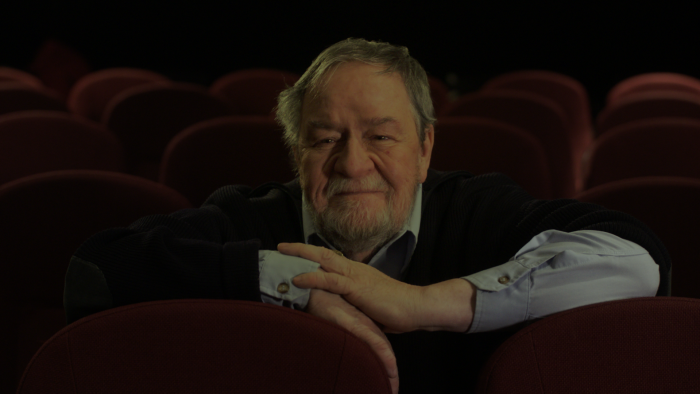
(Labrecque from Film to Memory. In the image: Jean-Claude Labrecque. Image provided by the NFB)
May 31, 2019 – Montreal – National Film Board of Canada (NFB)
It was with great sadness that the National Film Board of Canada (NFB) learned of the passing of acclaimed director and cinematographer Jean-Claude Labrecque. Throughout a career of more than 50 years, Jean-Claude Labrecque’s passion was expressed in many classic fiction films and essential documentaries, both as director of photography (Le chat dans le sac, Le règne du jour and La vie heureuse de Léopold Z) and as director (La nuit de la poésie, À hauteur d’homme and Jeux de la XXIe olympiade).
“He was an accomplished director, but more than that, he was a friend and a member of the NFB family. Jean-Claude Labrecque loved light, history and people, and never lost his capacity for wonder, a gift that he was able to transmit and share through his images and his works. Today, on behalf of the NFB, I salute this exceptional man who inspired us so profoundly, and with whom we enjoyed such a long and affectionate collaboration.” – Claude Joli-Coeur, Government Film Commissioner and Chairperson of the NFB
Born in the Limoilou district of Quebec City in 1938, Jean-Claude Labrecque was 10 years old when he discovered the evocative power of images. As he would later describe it, he was walking the streets of his hometown at the time, on the trail of a fascinating story he had discovered. His film career began in 1963, when Claude Jutra asked Labrecque to be director of photography for his film À tout prendre. By the start of the 1970s, he had already worked with Michel Brault, Pierre Perrault, Gilles Carle, Gilles Groulx, Don Owen and Anne Claire Poirier, among others. On January 1, 1965, he arrived in Italy, where he was part of the crew filming a documentary about Michelangelo Antonioni. It was a rich experience for Labrecque, who also witnessed the birth of Juliet of the Spirits, which Federico Fellini was shooting in a neighbouring studio. He returned to Montreal later the same year, having honed his craft, and offered his skills to Pierre Perrault for Le règne du jour (The Times That Are) and Gilles Carle for La vie heureuse de Léopold Z (The Merry Life of Leopold Z). In 1965, he finally directed his first film, 60 Cycles, a short documentary about the St-Laurent long-distance bicycle race. It won nearly two dozen international awards.
Since his directorial debut, Labrecque has made 40-odd documentaries and dramas. His body of work was honoured with the Jutra Homage award in 2008.
Some of Labrecque’s best-known films are documentaries in which the history of Quebec intersects with contemporary social issues. They include La visite du général de Gaulle au Québec (1967), which follows de Gaulle from the historic Chemin du Roy route to the balcony of Montreal’s City Hall, where he famously proclaimed “Vive le Québec libre!” (“Long live a free Quebec!”); the three Nuit de la poésie films (1970,1980,1991, co-directed with Jean-Pierre Masse), which capture poetry readings; Marie Uguay (1982), a closely observed portrait of a poet who would lose her life at a very young age; L’histoire des trois (1989), which recounts the actions of Université de Montréal students who occupied the office of Premier Maurice Duplessis in 1958 in the name of increased access to higher education; and À hauteur d’homme (2003), a gripping portrait of former Premier Bernard Landry, filmed during the 2003 provincial election campaign.
Throughout his career, Labrecque has been drawn to themes of social injustice—in both his dramas and documentaries. The 1972 drama Les smattes is about the callousness of bureaucrats who decide to shutter a village in the Gaspé. L’affaire Coffin (1979) revisits the trial that ended with the hanging of Wilbert Coffin, convicted for the murder of three American tourists in 1953. André Mathieu, musicien (1993), is a docudrama tracing the rise and fall of a prolific composer, and the first film treatment of Mathieu’s story.
Jean-Claude Labrecque’s last film, Sur les traces de Maria Chapdelaine (Remembering Maria Chapdelaine, 2015), continues his exploration of memory, a recurring theme in his work. The documentary Labrecque, une caméra pour la mémoire (Labrecque from Film to Memory), by Michel La Veaux, captures for the last time the passion and wisdom of this great director.
–30–
Related Products
Electronic Press Kit | Images, trailers, synopses: Labrecque From Film to Memory